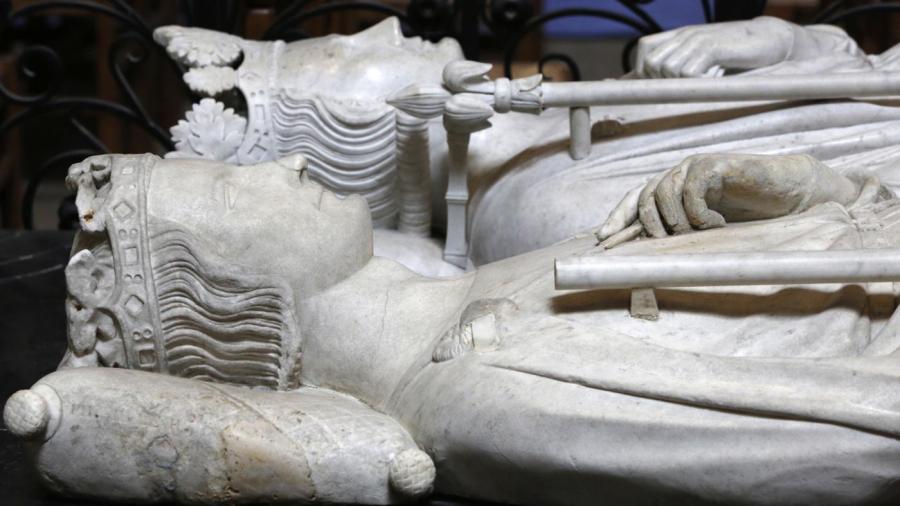What Was the Role of a Medieval King?

In medieval times, the role of the king was to own land, lead his country and people in times of war and set laws. A king was, essentially, the supreme ruler of his land.
Medieval kings had systems of governance and control that were formed primarily with the help of other people within their societies. Medieval kings, for instance, allowed lords, barons, knights and other members of society to live on their land, provided those members of societies helped to form and mobilize armies for the kings when necessary. Kings also helped lead their armies into battle when settling disputes with neighboring kingdoms, and they were the sole individuals responsible for doling out justice as they saw fit. As in modern societies, kings had materialistic ways of expressing their wealth. They did so by living in large castles, owning large estates and employing low-level workers. Kings also maintained a magnificent and luxurious wardrobe, and they would often buy exotic goods and riches like jewels and fine food.
Medieval Kings Over the Years
Medieval kings were prominent figures in the Medieval Period, which lasted over 1,000 years, say authors at Medievalchronicles.com. Medieval kings were similar to modern-day rulers in the sense that they had considerable amounts of power and authority over the people who they ruled ove. Medieval kings were found in England and Europe, and they had various sized empires and areas of territorial control. In the earlier stages of the Medieval Period, kings generally had smaller areas of territorial control. The earliest kings came from Wessex in England, and a little while later kings came from other areas around England and Denmark. As the Medieval Period continued, the geography shifted to Medieval kings from England and France. Over time, the power of Medieval kings gradually expanded, as kings began to fight wars with other kingdoms and acquired the lands of neighboring kings and kingdoms. It was not uncommon for kings to invade foreign kingdoms and take over the lands of rulers there. An example of this is William the Conqueror, who was initially a French king. William conquered the English armies in the Battle of Hastings, and consequently introduced the feudal system to England. In doing so, he was able to control the entire kingdom that he asserted dominance over.
Famous Kings
During the Medieval Period, there were quite a few kings. While some had short-lived reigns or relinquished their rule to other, more powerful leaders, others rose to power and gained fame and notoriety for their acts and accomplishments. In addition to William the Conqueror, William Rufus, King Henry I, Richard the Lionheart, King Edward I and King Richard II are some notable medieval kings. Richard the Lionheart was an English king who was born in 1157 and reigned until 1159. Richard the Lionheart ruled from 1189 to 1199. During the time of his leadership, he was known for his physical and emotional strength and bad temper. Richard was one of several siblings who ended up in multiple arguments and battles with his father, King Henry II. Richard the Lionheart was a combative medieval king who spent much of his time fighting battles and acquiring lands owned by other kingdoms.





